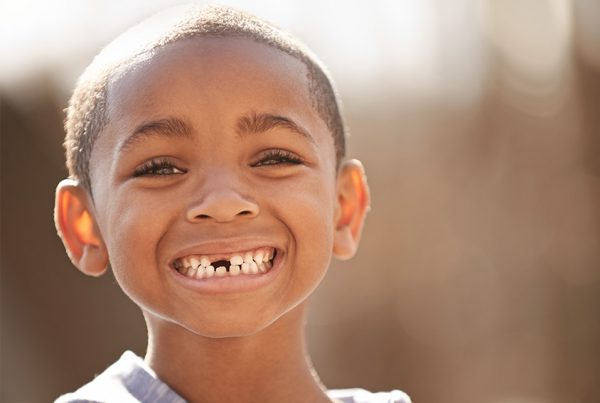NB: If you come to this section in a rush because someone has knocked an adult tooth completely out, go to ‘Knocked out adult tooth’ article.
This is not just about adults but about children who have their adult/permanent teeth. As a reminder, children get their front adult teeth between the ages of 6 and 7 years old. This advice applies to anyone with grown up adult teeth.
Knocked teeth
If a tooth has been knocked but there is no obvious damage and it looks like it’s still in the same position, hopefully you’ve got away with it. After a heavy knock, it is still advisable to get a check with your dentist. There can sometimes be fractures below the gum that you cannot see so get advice.
Even if no treatment is needed, it would still be wise to go gently on those teeth for a few days. Soft food chewed away from the traumatised teeth is best. There is a small risk after any knock or bang that the tooth dies off and discolours. Treat them carefully for a few days to give them the best chance of settling down.
Teeth that have moved
If the bang was so strong that the teeth have moved then you need to see the dentist straight away. It may be necessary for your dentist to get the area numb and reposition the tooth or teeth. Your dentist may then need to use a wire to hold them in position for a few weeks.
Again, a soft diet is a good idea. Keep things as clean as you possibly can with your toothbrush. The whole area might be quite painful so just do your best. There is a pretty good chance that teeth that have had to be repositioned will die and need a root canal treatment in future. The other option if you don’t want to try to save the tooth is to take it out.
Broken/Fractured Teeth
Small chips or fractures can be repaired quite simply by your dentist. The whole tooth might be quite sensitive after being chipped so the repair will help to reduce this.
Big fractures that have gone into the nerve of the tooth will almost always need root canal treatment to save the tooth. In very young patients when it is an adult tooth, you can sometimes avoid it. Certainly, for any adult with a break that exposes the nerve, a root canal treatment will be required. For more information on root canal treatment, please go to the article.
Our advice is based on the evidence base of the Dental Trauma Guide.
Keep updated with the Online Dentist newslettersign up today
Recent Articles
 Tooth decay is when you get holes (also known as cavities) in your teeth. This is caused by bacteria in plaque. It’s one of the main reasons why you need...
Tooth decay is when you get holes (also known as cavities) in your teeth. This is caused by bacteria in plaque. It’s one of the main reasons why you need...
 NB: If you come to this section in a rush because someone has knocked an adult tooth completely out, go to ‘Knocked out adult tooth’ article. Of course young children...
NB: If you come to this section in a rush because someone has knocked an adult tooth completely out, go to ‘Knocked out adult tooth’ article. Of course young children...




